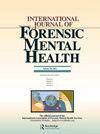解决暴力极端主义的临床服务:魁北克模式
IF 0.9
4区 医学
Q3 CRIMINOLOGY & PENOLOGY
International Journal of Forensic Mental Health
Pub Date : 2022-11-16
DOI:10.1080/14999013.2022.2147254
引用次数: 2
摘要
摘要出于意识形态动机的暴力与心理健康障碍的联系给安全机构和临床服务部门带来了具体的挑战。本文的目的是从暴力意识形态的类型和临床表现方面描述魁北克省蒙特利尔市一个专门干预项目的客户。我们对2016年至2021年间接受临床服务的156名暴力极端主义患者进行了回顾性图表审查。单变量统计用于描述客户的社会人口学和临床特征。在被转介为暴力极端主义的客户中,大约有三分之一的人(32.6%)表现出非意识形态暴力,其次是31.4%的人信奉极右翼极端主义意识形态,超过四分之一(25.6%)的人对性别持极端主义观点。其中超过三分之一的人患有压力相关(35.7%)和/或情绪和焦虑障碍(36.9%),其次是28%的人被诊断为自闭症谱系障碍。大多数人以前曾接触过心理健康服务。大量表现出极端主义言论和/或行为的客户需要精神病服务,但由于临床医生不愿与被视为高风险的个人合作,他们往往得不到服务;此外,个人可能不愿意参与被视为他们所拒绝的社会政治体系一部分的服务。专业服务是向这一群体提供心理健康护理的重要手段,也是发展与这一客户合作的知识和最佳实践,并向主流心理健康服务提供者提供咨询的重要手段。本文章由计算机程序翻译,如有差异,请以英文原文为准。
Clinical Services Addressing Violent Extremism: The Quebec Model
Abstract The association of ideologically motivated violence with mental health disorders raises specific challenges for security agencies and clinical services. The aim of this paper is to describe the clientele of a specialized intervention program based in Montreal, Quebec, in terms of type of violent ideology and clinical presentation. We conducted a retrospective chart review of 156 individuals referred for violent extremism who received clinical services between 2016 and 2021. Univariate statistics were used to present a description of client sociodemographic and clinical characteristics. Roughly a third of clients referred for violent extremism presented non-ideologically based violence (32.6%), followed by 31.4% affiliated with far-right extremist ideology and over a quarter (25.6%) holding extremist views on gender. Over a third of these individuals had a stress-related (35.7%) and/or mood and anxiety disorder (36.9%), followed by 28% with an autism spectrum disorder diagnosis. The majority had some previous contact with mental health services. A significant number of clients displaying extremist discourses and/or actions needed psychiatric services but often failed to receive them because of the reluctance of clinicians to work with individuals perceived as high risk; in addition, individuals may be reluctant to engage in services perceived to be part of a socio-political system they reject. Specialized services are important as a means to provide mental health care to this group and also to develop knowledge and best practices for working with this clientele and provide consultation to mainstream mental health service providers.
求助全文
通过发布文献求助,成功后即可免费获取论文全文。
去求助

 求助内容:
求助内容: 应助结果提醒方式:
应助结果提醒方式:


